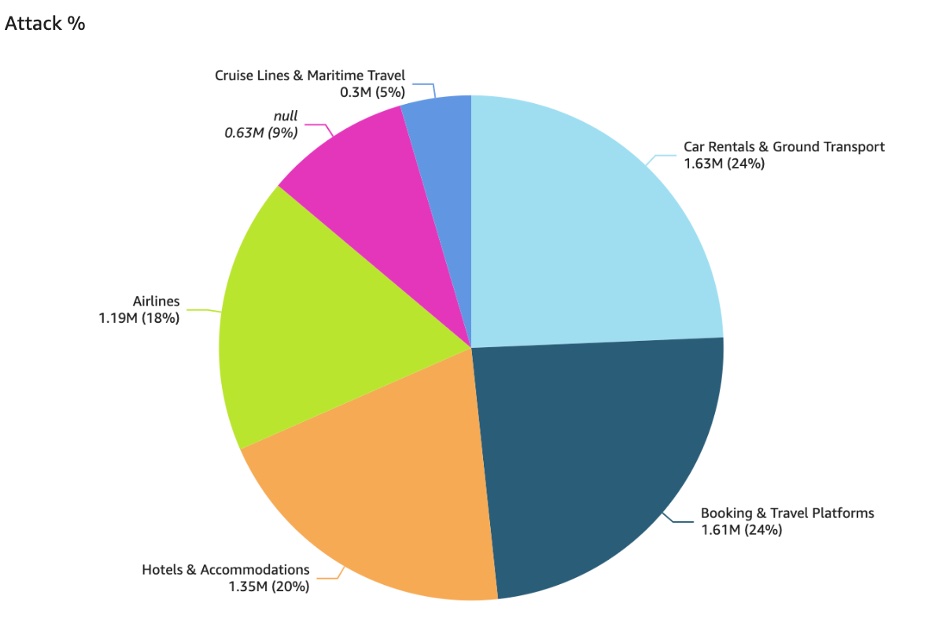TUI and Jet2 Navigate Travel Market Challenges with Strong Bookings and Strategic Adjustments

Published on
September 26, 2025

The travel industry, particularly package holiday companies and airlines, has seen various developments in recent months. As the sector continues to navigate challenges, updates from major companies like TUI and Jet2 have provided important insights into the current state of the market. These updates not only highlight the ongoing pressure on travel providers but also reveal how they are adapting to shifting consumer behavior and external market factors.
TUI’s Resilient Performance Amid Economic Challenges
TUI, one of the largest package holiday providers in Europe, recently provided a comprehensive update on its operations. Despite the economic challenges faced by consumers, TUI has shown resilience in its performance, with bookings increasing in certain markets, particularly in the UK. For instance, TUI noted that bookings in the UK have increased by 1%, demonstrating positive momentum despite broader economic uncertainty.
The company also reported positive trends for the winter 2025/26 season, with bookings showing a 1% increase overall. This indicates that travelers remain committed to leisure travel, even amidst challenging economic conditions. The average selling price (ASP) has also risen by 3%, suggesting that customers are still willing to spend more on their holiday experiences.
Popular Destinations and Customer Preferences
In terms of popular travel destinations, TUI highlighted a shift towards short and medium-haul locations, with the Canary Islands, Egypt, Spain, and Cape Verde leading the way in terms of volume. However, long-haul travel also continues to hold strong, with Thailand seeing the highest growth, alongside perennial favorites like Mexico, Jamaica, and the Dominican Republic.
This mix of destinations reflects a broader trend of customers seeking both affordable and exotic vacation options, suggesting that the desire for international travel remains strong. The company’s ability to secure positive momentum despite challenges points to the continued appeal of package holidays, where comprehensive deals that include flights, hotels, and other services provide added value to customers.
The Cruise Sector’s Strong Showing
The cruise sector, another key area of TUI’s operations, has shown resilience as well. Occupancy levels have remained strong, despite the introduction of more ships and an increase in capacity. Notably, TUI‘s introduction of the Mein Schiff Relax ship in March 2025 is expected to further boost demand. As a result, the company has been able to slightly raise prices without seeing a dip in demand, signaling that consumers are still prioritizing travel, including cruises, in their leisure spending.
Financial Outlook and Future Growth
Looking ahead, TUI’s outlook for FY25 remains positive, with the company forecasting a 9-11% growth in underlying EBIT (earnings before interest and tax) at constant currency. The company also expressed confidence in achieving its medium-term growth targets, despite the challenges posed by the global economic climate. TUI has positioned itself well to continue navigating the “choppy waters” of the travel industry, with a diversified business model that includes its own airline, cruise ships, and hotels.
Jet2’s Adjusted Expectations and Market Challenges
While TUI’s performance has been positive, Jet2, another prominent player in the UK holiday and airline market, has faced more challenges in recent months. In its latest update, Jet2 reported an increase in summer 2025 seat capacity, with 18.5 million seats set to be available—an 8% rise over summer 2024. However, the airline highlighted that bookings had been more concentrated closer to departure, leading to less certainty about the overall demand for winter 2025/26.
The company noted that, while it still expects earnings to fall within the lower end of its forecast range for the financial year ending March 2026, it remains premature to provide definitive guidance. The consensus range for EBIT is estimated to be between £449m and £496m, with the airline’s previous financial year ending at £446.5m.
Market Uncertainty and the Need for Flexibility
As Jet2 navigates these challenges, it has opted for a more cautious approach by reducing its winter 2025/26 capacity from 5.8 million seats to 5.6 million. This decision reflects a strategic move to exercise capacity discipline in response to a more uncertain consumer environment. The airline’s leadership remains confident, however, in its ability to achieve sustainable, profitable growth. The company pointed to its loyal customer base, flexible capacity management, and strong customer service as key factors that will support its performance in the future.
The Broader Impact of Economic Pressures on UK Travel
Despite the challenges faced by both TUI and Jet2, one trend has become evident: UK consumers continue to prioritize travel, even amidst the economic pressures stemming from inflation, cost-of-living concerns, and other financial uncertainties. After the disruptions caused by the pandemic, there has been a strong demand for international travel, and people are willing to invest in holiday experiences that provide an escape from everyday stresses.
This behavior indicates that travel, particularly package holidays, is still viewed as an essential part of life for many people, even in tough economic times. Both TUI and Jet2 have demonstrated that, although consumer behavior may be shifting in some ways, the overall demand for holidays remains resilient.
Conclusion: A Glimpse into the Future of Travel
In conclusion, the updates from TUI and Jet2 provide a snapshot of the UK travel market‘s ongoing recovery and resilience. While both companies have faced challenges due to external factors, they continue to navigate a volatile environment with strategic adjustments and a focus on delivering value to customers. TUI’s ability to maintain strong bookings despite economic pressures and Jet2’s cautious approach to capacity management demonstrate the importance of adaptability in the ever-changing travel landscape. As the year progresses, these updates suggest that while challenges remain, the demand for leisure travel—particularly in the form of package holidays and cruises—remains a priority for many consumers.
link






